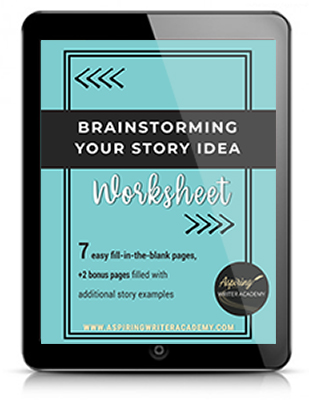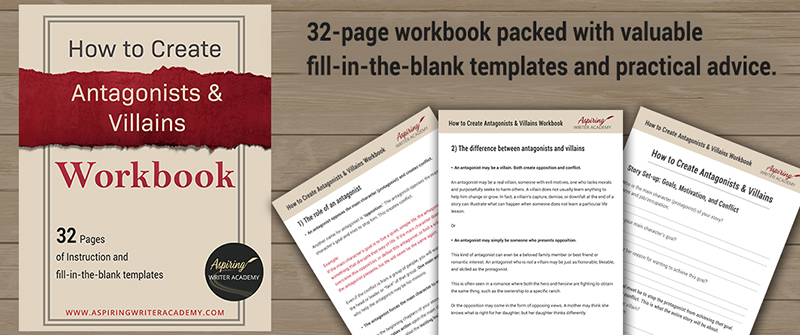Slingshot Week: How to Set Goals and Make 2025 Your Best Writing Year Yet

Do you need to recharge after the holidays? Are you eager to set meaningful goals for your writing journey in 2025? Whether you’re a new fiction writer ready to publish your first book or an established author seeking to elevate your career, the week between Christmas and New Year’s offers the perfect opportunity to set the tone for your most productive year yet.
In this blog post we’ll show you how to use “Slingshot Week” to reflect, refresh, and refocus, setting a foundation for writing success in 2025.
I first heard the term ‘Slingshot Week’ from my author friend, Cara Grandle, https://caragrandle.com/
who describes it as a dedicated time to relax and regroup after the holiday hustle. Think of it as pulling back a slingshot—the further you draw back, the farther your writing goals can propel you in the new year.
This week is your chance to:
- Refresh your mental well-being.
- Evaluate the past year.
- Set realistic writing goals.
- Organize your calendar for success.
- Balance your writing and personal life.
- Plan future projects and career moves.
If the week between Christmas and New Year’s is too hectic, consider scheduling your Slingshot Week in early January or at the start of any new 90-day writing cycle.
Refresh Your Mental Well-being
Taking time to refresh your mental and physical well-being is essential before diving into goal-setting for your writing projects. The holidays can leave us feeling drained, and creativity thrives when we’re well-rested and stress-free. As fiction writers, giving yourself space to reflect and recharge is key to reigniting your passion for storytelling and crafting compelling narratives.
Tips to Recharge:
- Unplug: Eliminate distractions like emails, social media, and excessive screen time. Take this week to disconnect from the constant buzz of electronics so you can focus on your writing journey.
- Relax: Watch a favorite movie in your pajamas, take a peaceful walk in the woods, or indulge in an activity that makes you feel at ease. These quiet moments can spark new ideas for your next book or novel.
- Practice Self-Care: Book a massage, savor your favorite treats, or simply sleep in and enjoy a slower pace. Recharging your energy will help you tackle the challenges of writing fiction with renewed creativity.
Use this “Slingshot Week” as an opportunity to evaluate your writing progress over the past year (or the last 90 days) and ponder your next steps. Reflect on your accomplishments, brainstorm new book ideas, or even outline key scenes for your current project. By taking this time to step back, you’ll give your brain the space it needs to dream, brainstorm, and explore fresh creative possibilities.
If you’ve been pushing aside things you’ve wanted to do, now is the perfect time to indulge. Maybe it’s reconnecting with a loved one, tackling an overdue home project, or immersing yourself in a hobby like painting or sewing. These breaks can reignite your enthusiasm for storytelling and provide inspiration for your writing.
This intentional downtime not only clears mental clutter but also recharges your enthusiasm for life and your motivation for crafting your next fiction masterpiece. Be kind to yourself—you deserve it!
Evaluate the Past: Reflecting on Your Writing Journey
Reflection is a vital step in the growth of every fiction writer. Before diving headfirst into new writing projects or goals, take a moment to pause and evaluate the progress you’ve made over the past year (or the last 90 days). This process is about learning from your successes and challenges to plan effectively for the future.
Questions to Ask Yourself:
- What worked?
Celebrate your successes—whether it’s finishing a manuscript, publishing your first book, or mastering a particular aspect of storytelling. Reflect on what contributed to these wins, such as consistent writing habits, effective planning, or feedback from beta readers or critique groups.
- What didn’t?
Be honest about setbacks. Did procrastination or a lack of focus slow you down? Were there external challenges, like family responsibilities or a demanding job? Perhaps you got sidetracked by shiny distractions like new writing tools, courses, or marketing gimmicks instead of focusing on actual writing.
- What can improve?
Pinpoint specific areas for growth. Do you need to enhance your time management, improve your character development, or focus more on marketing your fiction books? Identifying these areas sets the stage for actionable change.
Examples for New and Experienced Authors
Success Stories to Celebrate:
- Completed a full draft of your novel.
- Published your first short story or joined a writer’s group.
- Learned how to use writing tools like Scrivener or mastered the basics of self-publishing on KDP.
Challenges to Address:
- Abandoned projects due to lack of planning.
- Struggled with imposter syndrome or fear of rejection.
- Procrastinated finishing your book because you jumped between multiple ideas.
By reflecting on these, you can determine what adjustments will make you a more focused and efficient fiction writer.
Taking Stock During ‘Slingshot Week’
During this reflective week, dig deeper into what truly held you back. Sometimes life throws curveballs, like health issues or family emergencies, that temporarily force writing to take a back seat. Acknowledge those seasons and give yourself grace.
However, more often, the issues stem from habits or choices:
- Procrastination: Did you spend more time thinking about writing than actually doing it?
- Shiny Object Syndrome: Were you lured away by a new writing course, a flashy plugin, or marketing trends before finishing your book?
- Lack of Prioritization: Did your personal life overshadow your writing schedule?
Plan for Growth
After identifying these obstacles, consider actionable solutions:
- Improve Time Management: Dedicate specific hours for writing each week, and stick to them.
- Focus on One Project: Avoid hopping between ideas. Commit to finishing your current draft before moving on.
- Enhance Your Craft: Invest in fiction writing resources or books, like On Writing by Stephen King or Save the Cat! Writes a Novel by Jessica Brody, to strengthen your skills.
By reflecting on the past with honesty and clarity, you set the foundation for a productive and rewarding year ahead as a fiction writer.
3. Reset Your Calendar
A well-structured calendar is a writer's best friend. Use Slingshot Week to reset and plan your year with intention and flexibility.
Steps to Organize:
- Choose Your Tools: Whether it’s a desk calendar, wall calendar, digital app, or a bullet journal, pick the tool that works best for you. Make sure it’s something that lets you view multiple months at once for better planning.
- Mark Key Dates: Add important dates like birthdays, anniversaries, holidays, family events, and writing conferences. Make sure to highlight any deadlines or personal milestones so your writing schedule doesn’t overlap with these events.
- Plan Writing Blocks: Schedule dedicated writing time for drafting, editing, and brainstorming. Look at your calendar and decide when you can realistically block out time each week to focus on your projects. Is there a consistent window where you can write without distractions?
- Allow Flexibility: Life happens! Leave space in your calendar for unexpected events, sick days, or creative breaks. Flexibility is key to maintaining balance and avoiding burnout.
- Be Realistic: This is the hard part—take a close look at how much time you actually have available for writing. With everything marked out, ask yourself: When will I write? How much can I realistically accomplish each week or month? Make sure your goals align with your availability, and give yourself enough room to adjust if things don’t go exactly as planned.
By resetting your calendar with intention and flexibility, you’ll set yourself up for success without overloading your plate.
4. Balance Your Personal Life vs. Writing Life
- When will you write each day?
- When will you exercise to keep your body energized and your mind clear?
- How will you stay active on social media without it draining your creative energy?
- When will you take breaks to eat, connect with loved ones, or just relax?
- Do you have enough downtime built into your routine to avoid burnout?
- Create Realistic Time Blocks: Can you dedicate 4 days a week to writing and set aside a day for household chores or personal errands? Or perhaps you’ll write for 4 days and reserve a fifth day for social media and marketing, leaving weekends open for personal time. The key is consistency—set your intentions for each week, but allow room for adjustments.
- Review and Adjust: If past attempts at balancing personal life with writing haven’t worked, use the new year as an opportunity to make changes. Look at your current routine, see where you can shift things around, and prioritize what matters most.
Starting each day and week with a clear plan helps you stay productive while maintaining a healthy balance between your writing career and personal life. Balance isn’t about being perfect—it’s about finding what works for you and your lifestyle.
5. Create a New Writing Schedule
Once you’ve organized your calendar and achieved balance between personal life and writing time, it’s time to develop a new writing schedule that supports your goals and lifestyle.
Reflect on your past year: Did you have a regular writing schedule? What days and times worked best for you? Did you manage to stick to it consistently, or did you struggle with motivation and time management? Use these insights to adjust your approach and create a more effective routine.
Here are some things to consider as you design your new writing schedule:
- Evaluate Past Habits: Did you have specific days or times set aside for writing, or was it more sporadic? Think about what worked and what didn’t. Were there days you wrote more effectively than others? Did you miss writing sessions altogether?
- Adjust Your Timing: Do you need to shift your writing time? Perhaps you’ll need to wake up an hour earlier or stay up later after your family is asleep to get uninterrupted writing time. If evenings are quiet and productive for you, this might be your ideal writing window.
- Consider Weekends: If weekdays are filled with personal obligations and work, you might choose to limit your writing time to weekends. This allows you to focus on your day job and family while still making progress on your writing projects during free time.
- Commit to Consistency: If you’ve been writing haphazardly without setting firm writing blocks, this year could be the time to schedule your writing sessions into your calendar and treat them like appointments. By sticking to your writing schedule, you can establish a consistent habit that fosters productivity.
- Find What Works for You: Every writer has a different rhythm. Some write best early in the morning, others thrive at night. The key is to find a schedule that aligns with your life and energy levels, ensuring you can consistently show up for your writing.
A well-planned writing schedule is crucial to your success. By carving out dedicated time for writing, you’ll build momentum and stay on track with your goals throughout the year.
6. Make a Decision on Future Writing Projects
As you kick off Slingshot Week, it’s the perfect time to evaluate your current writing projects and make decisions about your future endeavors. Whether you're in the midst of writing a novel or wrapping up a manuscript, now is the time to reflect, reassess, and plan your next steps.
- Evaluate Your Current Project: If you're in the middle of a novel or another long-term project, take a moment to check your progress. Are you ahead of schedule, behind, or right on target? Look at your writing calendar and determine if you need to adjust your writing blocks to meet your deadlines. This reflection can help you get back on track or stay ahead, ensuring you finish strong.
- Plan for Future Projects: If you’ve wrapped up a project, now’s the time to think about what comes next. Have you brainstormed new story ideas? What will your next big project be? Whether you're focusing on novels, short stories, blog posts, or articles, it’s important to define what you want to write in the coming year. Be realistic with your expectations based on your available time—take your calendar into account to ensure you don’t overwhelm yourself.
- Set Writing Goals: How many books or blog posts do you want to write this year? What goals will you set for your writing career in the next 12 months? Whether you’re planning a series of novels or focusing on building your portfolio with blog posts, set clear, achievable goals that align with your personal and professional aspirations.
Evaluate Your Writing Career: Where are you in your writing journey? Are you satisfied with your progress, or are there areas where you want to grow? This is the perfect time to assess whether you’re ready to take your writing career to the next level. Consider what skills or resources could help you succeed:
- Do you need to take an online writing course to enhance your skills?
- Is building an author platform a priority, or growing your email newsletter list?
- Are you looking to learn more about book promotion or improve your marketing strategies?
- Do you need to polish your technical skills, such as mastering writing software or enhancing your website?
- Are you ready to query literary agents or self-publish your next book?
Taking the time to evaluate your current projects and future goals will give you clarity and direction as you head into the new year. Whether you're a new writer or an experienced author, setting specific goals and creating a plan for your writing career will keep you motivated and focused as you continue to grow.
7. Choose Which Writing Classes & Conferences to Attend
As a writer, growth never stops. Ongoing education is essential not only to improve your craft but also to stay inspired and energized. Whether you're a new writer or an experienced author, attending writing classes and conferences can provide fresh insights, help you solve plot challenges, and even rekindle your passion for storytelling.
- Expand Your Knowledge: Writing is a craft that requires constant honing. Attending workshops, webinars, and classes can help you sharpen your skills, whether you're struggling with a plot problem or simply looking to enhance your narrative techniques. Many writers find that going back to the basics or exploring new genres can reignite creativity and provide new perspectives.
- Network with Industry Professionals: Classes and conferences aren’t just about learning—they’re also about building relationships. Networking with other authors, literary agents, editors, and even marketing experts can open up doors for new opportunities. The connections you make at these events could lead to publishing deals, collaborations, and invaluable industry insights. As a writer, who you know can sometimes be just as important as what you write.
- In-Person vs. Online: While in-person conferences and classes provide the best networking opportunities, online classes and webinars have become a fantastic alternative, offering flexibility and access to top instructors from around the world. Whether you choose an online course or a face-to-face conference, both options offer unique benefits.
- Find Writing Events That Fit Your Goals: Start by researching writing conferences, workshops, and classes that align with your genre or career goals. Look for national and local writing events, many of which feature esteemed keynote speakers, literary agents, and editors. If you have the budget, consider attending a national conference where you can immerse yourself in intensive learning and networking.
- Consider Your Schedule & Budget: When choosing which writing events to attend, keep your calendar and writing deadlines in mind. Can you realistically fit these events into your schedule without compromising your writing time? Look at both in-person and online options to find the ones that fit your needs and budget.
By prioritizing writing classes and conferences, you invest not only in your education but also in the future of your writing career. Whether you're learning new skills, finding solutions to your writing challenges, or making valuable industry connections, these events can propel you forward as a writer.
8. Sketch Out a Marketing Plan for 2025
As 2025 approaches, it’s time to think strategically about how you’ll market your work in the new year. Whether you’re a new writer building an audience or a published author planning your next book launch, a solid marketing plan is essential for growth and success.
Building Your Author Platform
If you’re just starting your writing journey, 2025 could be the year to establish your online presence. Consider creating an author website to showcase your writing, share your story, and connect with readers. Expand your reach with social media marketing by starting an author Facebook page, an Instagram account, or even a TikTok profile tailored for writers. These platforms allow you to build your brand and engage with potential readers.
Creating Valuable Content
Think about launching a blog, podcast, or YouTube channel in 2025 to grow your audience further. Share your writing process, tips for new writers, behind-the-scenes looks at your projects, or even book recommendations. These platforms can set you apart and make your voice stand out in the crowded online space.
- Blogs: Post about your writing process, tips for aspiring authors, or updates on your projects.
- Podcasts: Discuss storytelling, host interviews with other authors, or share motivational insights.
- YouTube: Create content like writing tutorials, book reviews, or “day in the life of a writer” videos.
Marketing for Published Authors
If you’re already published, your marketing plan for 2025 might focus on promoting your existing books while planning future launches.
- Pre-orders: Will you set up pre-orders months in advance to generate buzz?
- Street Teams: Can you assemble a group of dedicated fans to help spread the word about your upcoming releases?
- Book Launch Events: Are you planning book signings, multi-author events, or virtual book tours?
- Advertising: Consider experimenting with Amazon Ads, Facebook Ads, or BookBub promotions to target new readers.
Planning for the Year Ahead
Integrate your marketing efforts into your overall calendar for 2025. Balance is key—align your writing schedule, personal commitments, and marketing plans to stay organized and avoid burnout. Use tools like planners, digital calendars, or apps to track your goals and deadlines effectively.
Adapting and Evolving
As the year progresses, revisit your marketing plan regularly. Analyze what’s working and what isn’t. Are your social media posts engaging readers? Is your email list growing? Are your book promotions leading to sales? Don’t be afraid to adjust your strategies to improve results. Marketing is a learning process, and staying flexible is vital.
Make 2025 the year you grow your audience, connect with readers, and take your writing career to the next level. With a well-thought-out marketing plan and a commitment to taking your writing to the next level!
We hope you’ve found inspiration and actionable tips during Slingshot Week to help you set meaningful writing goals for 2025! Whether you're starting fresh or building on the momentum of past successes, this week is all about creating a roadmap for your best writing year yet.
By reflecting on your journey, organizing your writing projects, balancing your personal and creative life, and planning for marketing and growth, you're setting yourself up for success. Remember, 2025 is a blank slate—an opportunity to achieve your writing dreams one goal at a time.
If you have questions, need advice, or want to share your own writing goals for 2025, we’d love to hear from you. Drop a comment below to join the conversation—your insights might inspire fellow writers!
Let’s make 2025 the year of creativity, productivity, and success. You’ve got this!
Pin on Pinterest



We Believe All Authors Can Aspire to Take Their Writing to the Next Level!
Our Goal for Aspiring Writer Academy is to help people learn how to write quality fiction, teach them to publish and promote their work, and to give them the necessary tools to pursue a writing career.
Do you find it difficult to create compelling antagonists and villains for your stories? Do your villains feel cartoonish and unbelievable? Do they lack motivation or a specific game plan? Discover the secrets to crafting villains that will stick with your readers long after they finish your story, with our How to Create Antagonists & Villains Workbook.
This 32-page instructional workbook is packed with valuable fill-in-the-blank templates and practical advice to help you create memorable and effective antagonists and villains. Whether you're a seasoned writer or just starting out, this workbook will take your writing to the next level.

ENTER YOUR EMAIL BELOW
TO GET YOUR FREE
"Brainstorming Your Story Idea Worksheet"
7 easy fill-in-the-blank pages,
+ 2 bonus pages filled with additional story examples.
A valuable tool to develop story plots again and again.
Other Blog Posts You May Like
No More Excuses: How to Fit Writing into Your Life with Just 10 Minutes a Day
10 Questions to Consider Before Starting a New Writing Group
What is NaNoWriMo? How This Fun Challenge Can Kickstart Your Novel
100 Essential Writing and Publishing Terms All Authors Should Know
How to Get More Done with a Weekly Writing Plan!
How to Write Your Very First Fiction Novel
A Beginner’s Guide to the Top 10 Genres for Popular Fiction
How to Create a Deadline for Your Fictional Novel
Top 7 Books to Make You a Super-Productive Writer
How to Boost Your Productivity and Get Your Novel Written
How to Create S.M.A.R.T. Goals to Keep Your Writing on Track
How to Find a Writing Group: Tips for New Authors
Finding Your Genre: Tips for New Authors
The Power of Understanding Book Genres for New Authors
The Ultimate List of Book Genres: 95+ Popular Genres & Subgenres
Write Your First Novel: How Do You Start?
Do You Dream of Being a Published Author? (How Bad Do You Want It?)
Who is an ‘Aspiring Writer?’ 3 Tips to Escalate Your Career No Matter What Level You Are At
How to Write the Midpoint of Your Novel (and Avoid a ‘Saggy Middle’)
20 Items to Bring to Your First Writer’s Conference
How to Find a Great Story Idea in 4 Easy Steps
How to Write a Novel While Working Full Time
Slingshot Week: How to Set New Goals for Writing in 2023
The Pros and Cons of Writing Holiday Fiction (Collections & Anthologies)
Fiction Writing: How to Find a Critique Partner/Group
7 Steps to Begin Writing a New Fictional Story
Fiction Writing: 5 Key Differences Between a Novel and a Novella
Fiction Writing: Office Supplies to Help You Prepare to Write Your Next Novel
3 Levels of Goal Setting for Fiction Writers























